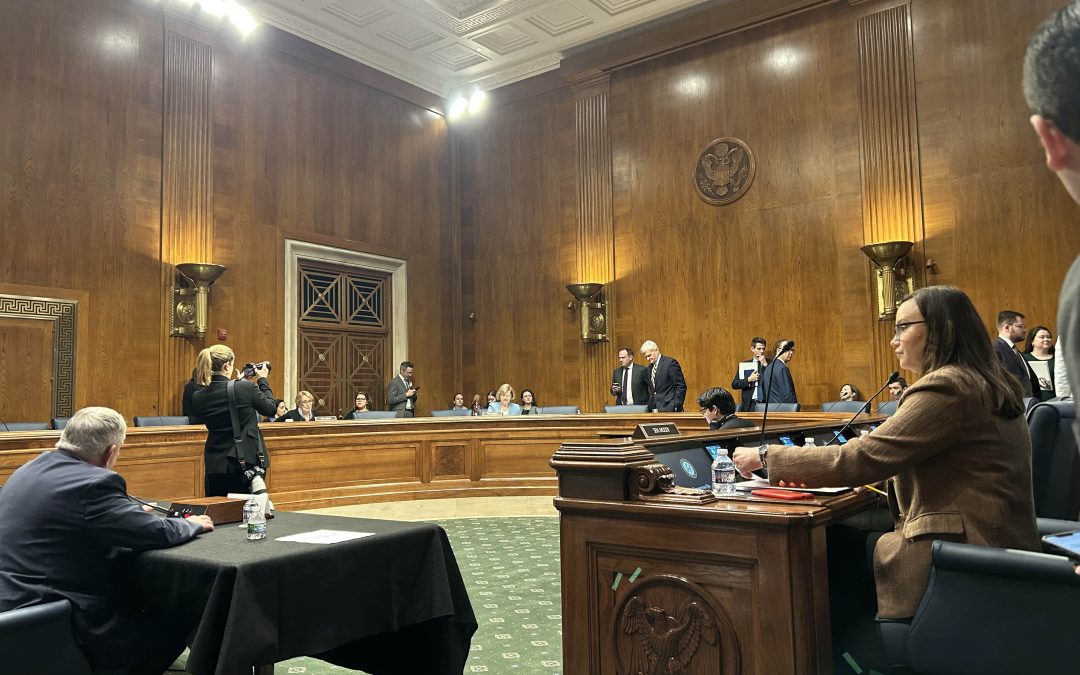WASHINGTON – The deputy secretary nominee of the Department of Health and Human Services faced direct questioning on the current changes happening at the largest department in the federal government.
James O’Neill, President Donald Trump’s nominee for deputy secretary, testified at a Health, Education, Labor and Pensions Senate Committee hearing on Thursday, underscoring his support of the administration’s vision to improve the country’s health.
O’Neill said his goals with the position would be to make it easier for Americans to be healthy by making healthcare more affordable and food healthier.
“I believe that all Americans deserve to be healthy, happy and prosperous,” O’Neill said in his initial testimony to the committee.
The hearing had none of the confrontational tone of the confirmation hearing of Health and Human Services Secretary Robert F. Kennedy Jr. While Senators criticized Kennedy’s positions on autism and vaccines, senators had no criticisms of O’Neill’s medical opinions, despite the fact that O’Neill previously supported allowing people to sell organs.
Instead, committee members used the hearing as an opportunity to ask O’Neill his thoughts on the current work of the Health and Human Services Department, specifically the transparency of the department’s program and staffing cuts.
“He will help steer a ship that’s going through massive changes,” said committee chairman Bill Cassidy, R-LA, when first introducing the nominee.
Several of the Democratic lawmakers on the committee viewed the Trump administration’s policy changes negatively. Senators Patty Murray, D-WA, Angela Alsobrooks, D-MD, and Tammy Baldwin, D-WI, all brought up Health and Human Services programs and staff that have been cut with no explanation over the first four months of Trump’s presidency.
In the president’s budget proposal for 2026, the Department of Health and Human Services received one of the largest budgetary cuts in the federal government, with the administration asking for $33 billion less that was allotted in the 2025 budget.
Despite little clarity so far by Kennedy and agency officials as to why the department’s budget proposal shrank by over 25%, O’Neill promised transparency when it came to budgetary decisions.
“I commit, if confirmed, to ensure that the whole department takes seriously its obligation to provide good, transparent, accurate, prompt information to Congress,” O’Neill said.
When asked about staffing decisions throughout the department, O’Neill was less direct, but he said “making sure there’s the right number of people with the right skills in every division of HHS would be [his] responsibility.”
The National Institute of Health and the Low Income Home Energy Assistance Program received the most cuts in the Health and Human Services budget proposal. The budget also includes $500 million for the Make America Healthy Again initiative, which “would allow the secretary to tackle nutrition, physical activity, healthy lifestyles, over-reliance on medication and treatments, the effects of new technological habits, environmental impacts, and food and drug quality and safety,” according to the budget proposal.
Next week, the committee expected to hear from Kennedy concerning the budget proposal.
O’Neill was nominated for deputy secretary of the Department of Health and Human Services by President Donald Trump a couple of weeks after the president’s election victory. He previously worked within the department during the Bush administration and previously served as CEO of the Thiel Foundation, a science and technology company owned and funded by billionaire Peter Thiel, a major Trump supporter.
Several members of the committee referenced the planned nomination hearing for the president’s surgeon general nominee, which was on the committee’s calendar at the start of the week. Dr. Janette Nesheiwat, the previous nominee, was set to attend the committee hearing, but the nomination was pulled by Trump late on Wednesday, May 7.
The president’s new nominee for surgeon general of the Public Health Service, Casey Means, is a prominent member of the “Make America Healthy Again” movement. Casey Means and her brother Calley Means served as advisors to Kennedy’s 2024 independent presidential campaign.
The wellness influencer graduated from Stanford University’s School of Medicine, but left the institution before completing her surgical residency. Casey Means does not have prior experience in Public Health Service.
It is unclear why the president changed the nomination, but Laura Loomer, a far-right influencer and advisor to Trump, criticized Nesheiwat earlier this month.
Trump indicated that Nesheiwat will serve in the Health and Human Services “in another capacity.” Means’ nomination had not yet been scheduled.

